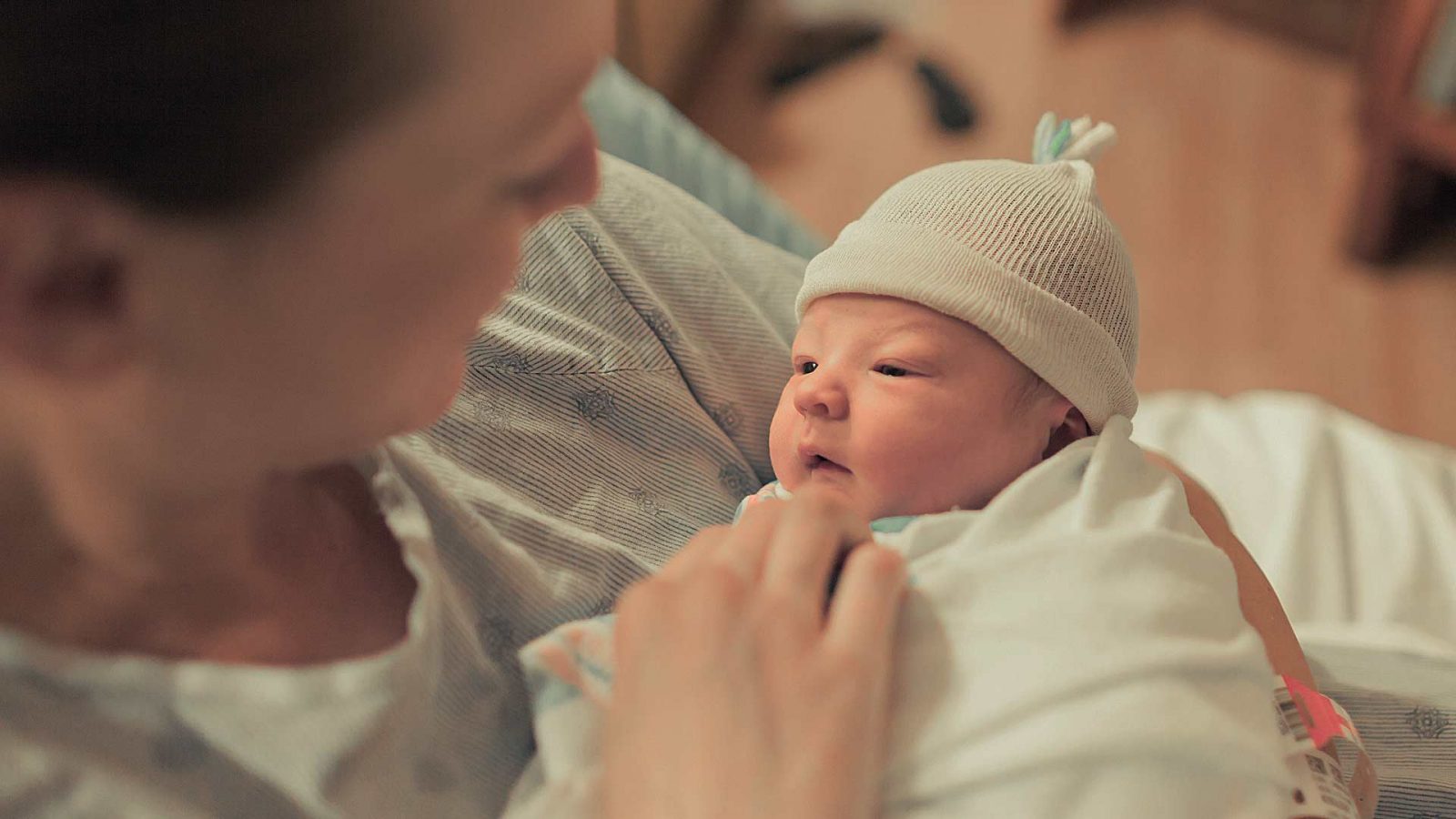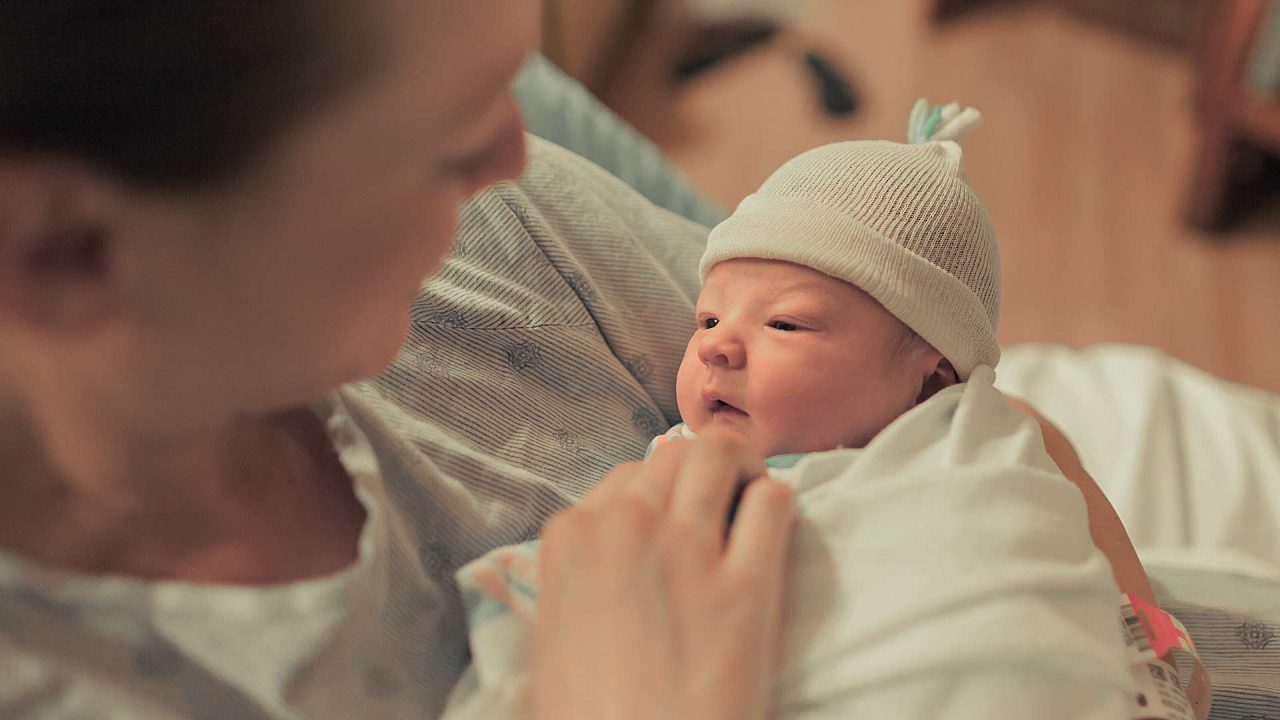
More than 100 people signed up to testify on a bill that would amend Alaska’s Constitution to clarify that nothing in the Constitution can be interpreted as granting a right to abortion or public funding of abortion. The law would not ban abortions outright, but rather clarify that judges cannot construe the law so as to find a right to abortion where there is none.
The Feb. 26 hearing in the Senate Health & Social Services Committee lasted an hour and a half and included nine speakers in favor of SJR 13 and four opposed to the bill. A second day of public testimony is scheduled for March 6, but written comments can be sent at any time.
Bill sponsor Sen. Shelley Hughes, R-Palmer, began the hearing saying that the bill would keep judges from continuing to strike down efforts to regulate or restrict abortion through legislation or voter initiatives. The problem, according to Hughes, is that the courts have construed the state’s 1972 right to privacy provision as guaranteeing the right to abortion.
This bill is designed to keep the courts from adding something to the state constitution that its framers never envisioned.
“Decades ago, when the Legislature in this building passed a resolution to put the right the privacy on the ballot, and when Alaskans agreed with that amendment in ballot box in 1972 it had nothing, I repeat nothing to do with abortion,” Hughes said. She added that the right to privacy amendment was clearly aimed at curtailing government attempts to gather information on citizens at the dawn of the computer age.
“This bill is not intended to tell the Legislature that they may not fund abortion in the future,” Hughes added. “This bill is designed to keep the courts from adding something to the State Constitution that its framers never envisioned.”
ALASKA WATCHMAN DIRECT TO YOUR INBOX
Hughes noted that 37 states have laws requiring parental notification before a minor girl receives an abortion, and 21 require parental consent. Similar laws in Alaska have been deemed unconstitutional by the Alaska Supreme Court.
Support for the bill included Democrats and a self-described feminist atheist who testified that the state should have a right to regulate and restrict abortion.
Louisiana State Senator Katrina Jackson, a pro-life Democrat who has successfully supported laws restricting abortion in her state, said it was “alarming” to see how courts such as the Alaska Supreme Court were “able to strike down legislation that the U.S. Supreme Court clearly said that a state could pass.”
She said a Louisiana law on parental consent before a minor undergoes abortion has helped her state identify young girls who were victims of sex trafficking.
“I don’t think state legislators’ hands should be tied when there is a valid state interest in the health and safety of their constituents in regulating this area,” she testified.
The purpose of elective abortion is to produce a dead baby for social, not medical reasons.
Dr. Donna Harrison, the executive director of the American Association of Pro-life Obstetricians and Gynecologists, said Alaskans have a right to pass “reasonable restrictions” on abortion, especially elective abortions.
“Elective abortion is not necessary for women’s reproductive health,” said Harrison, a board certified OBGYN. “The purpose of elective abortion is to produce a dead baby for social, not medical reasons.”
Harrison Described the gruesome ways many abortions unfold, including babies being “torn limb from limb,” or babies whose “brains are pierced.” In cases of induction abortions, she said babies are sometimes born alive and then left to die.
Terrisa Bukovinac described herself as a liberal, Democrat, atheist, feminist, vegan who is also an LGBTQIA ally and “the founder and executive director of Pro-life San Francisco.” Her organization is dedicated to resisting abortion.
Bukovinac argued that most Democrats favor at least some regulation of abortion, something which Alaskans are currently unable to do.
“Why is it so controversial to declare that there is no right to abortion when, after all, we are not calling for its criminalization, we’re simply keeping the door open for regulations?” she asked.
Bukovinac argued that most Democrats favor at least some abortion regulations, something Alaskans are currently unable to do.
Former Lieutenant Governor Loren Leman spoke in favor of the bill, calling it “a necessary step in restoring – through elected officials and the people of Alaska – the ability to set policy on abortion. Sadly, that authority has been usurped for more than two decades by a series of unfortunate court decisions.”
He recalled the bill he sponsored in 1997 to allow Alaskans to enforce the law requiring parental consent before an abortion. The bill was signed into law, challenged by Planned Parenthood and struck down by the Alaska Supreme Court. When the court said a less restrictive “parental notice” law would be permitted, they struck that down, too, once it was challenged.
The four people who testified against the bill all warned that restrictions would lead to illegal abortions that would put women at risk.
Caroline Malseed, of Juneau, tried to make the argument that Jesus was at least neutral on the issue of abortion. She said her Episcopal Church opposes legislation that would “abridge or deny the right of individuals to reach informed decisions about the termination of pregnancy and act on it.”
“I want to say that termination of pregnancy existed in biblical times, however, there is no biblical proscriptions against it,” she said. “Jesus said nothing about the termination of pregnancy.”
A Soldotna woman testified that she was the victim of sexual abuse at age 15.
“Although the experience of sexual assault in my hometown was awful, I am extremely grateful that my assault did not result in me becoming pregnant,” she said. “I know that others in my area have not been as fortunate and have resulted in forced birth or unwanted pregnancy.”
Parents have a vital role in directing the paths that the teenagers take.
She said she the amendment would “not end abortion, it just supports ending safe and legal abortion.” She claimed that young people would die if the bill became law.
Dr. Sarah Hennemann, of Capstone Family Medicine in Wasilla, had a different perspective when it came to victims of sexual assault – especially with regards to minors.
Hennemann has worked for 13 years in family medicine in Alaska, including delivering babies. She recalled 15-year-old girl who nearly lost her life due to post-abortion complications because her parents were never informed that their daughter had received an abortion.
“Parents have a vital role in directing the paths that the teenagers take,” Hennemann stated. “In more frequent cases, these young women are left to process through the grief and loss that nearly every woman will experience after an abortion.”
TAKING ACTION:
SJR 13 has its next public hearing on March 6, 1:30 p.m. in the Senate Health & Social Services Committee. Committee members can receive emails on this issue at shss@akleg.gov. Click here to call in and testify by phone.







